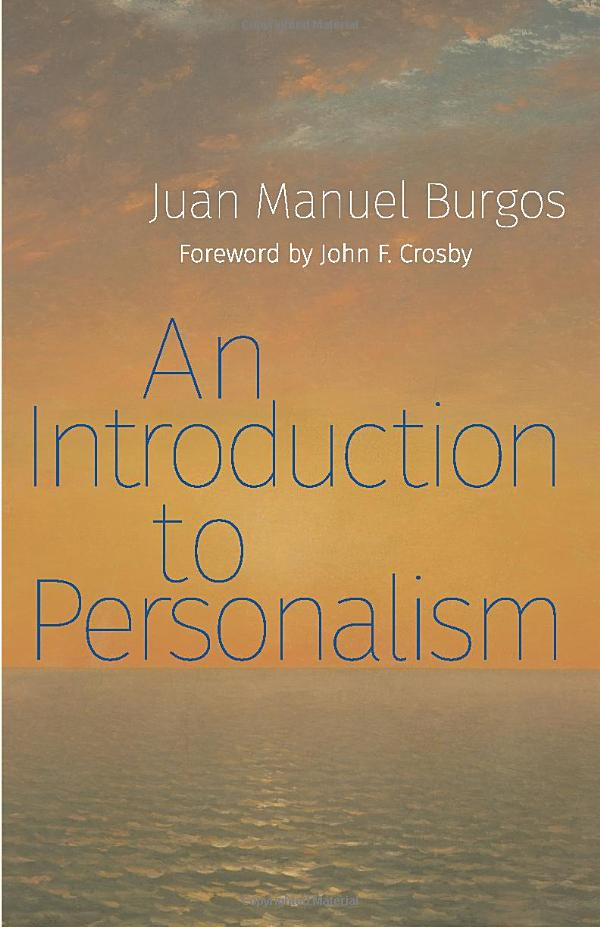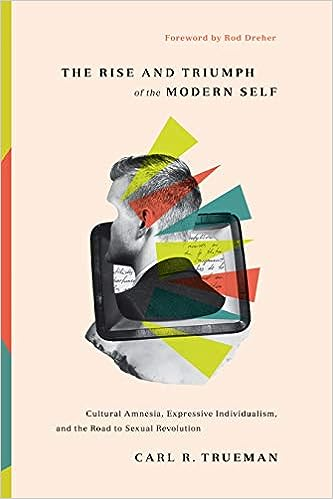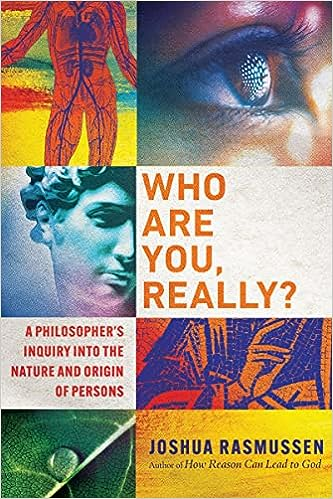The Illusion of Analytic Philosophy and Metaphilosophical Eudaimonism as Personalism.
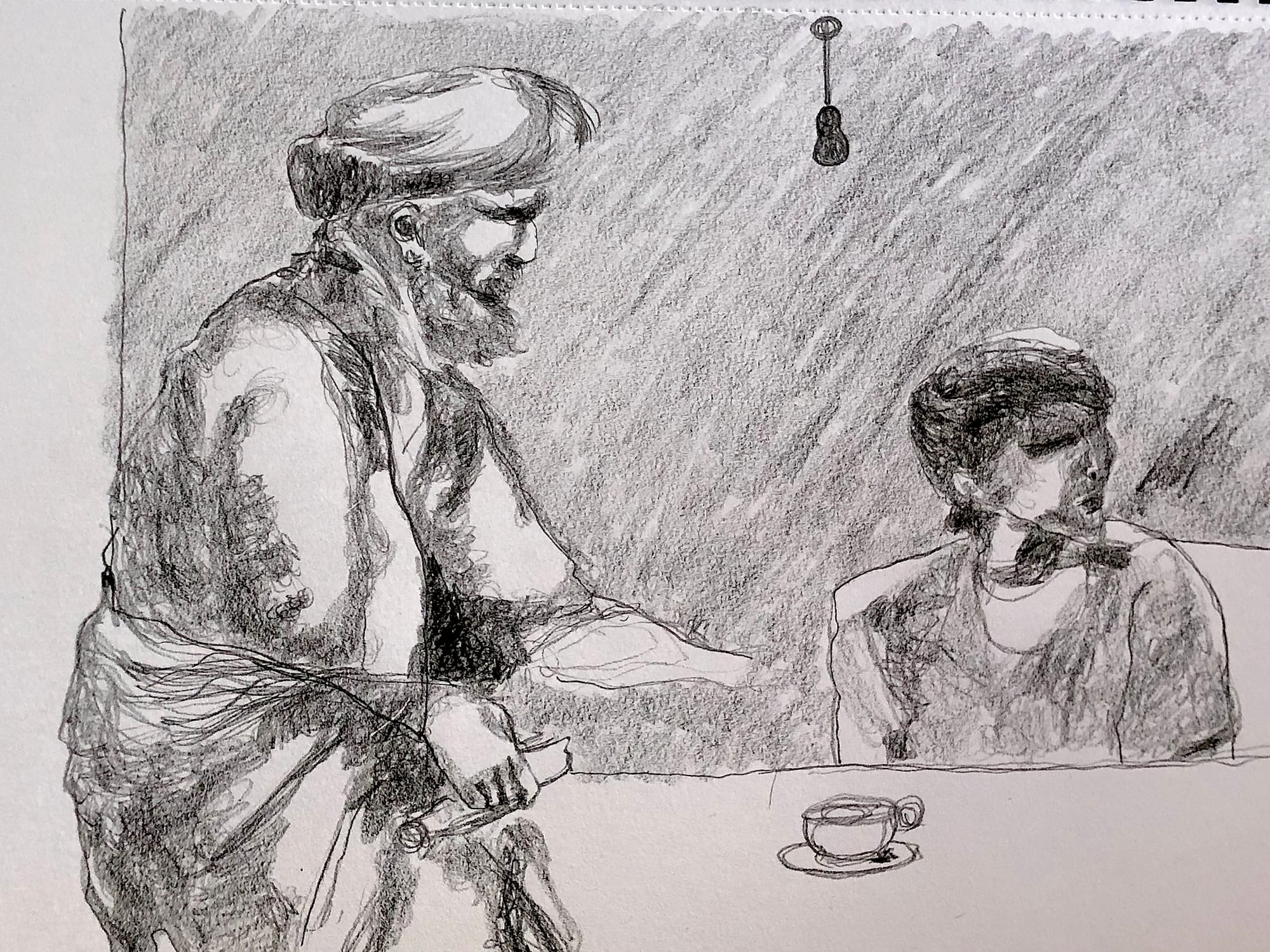

'Analytic philosophy has been the ruling paradigm in Anglophone philosophy for the better part of a century now. In combination with its sense of superiority, this disciplinary dominance has enabled analysts to marginalize other approaches. But if the analytic revolution was based merely on a sense of shared know-how that has never been sufficiently articulated or defended, then it would appear that its dominance is philosophically unjustified, that the Emperor has no clothes.'
'Consider how dissenters from “progressive” narratives concerning racial inequality, transgenderism, or any number of “social justice” issues, have been treated in various spheres of “public discourse” over the last decade or so. I’m thinking of people like Adolph Reed, Roland Fryer, Heather MacDonald, Glenn Loury, John McWhorter, Holly Lawford-Smith, Kathleen Stock, Rebecca Tuvel, Alex Byrne, and many others. These are highly intelligent people who present reasoned opposition to perspectives which, without any real evidence or argument, have managed to get themselves accepted as established truths by an appreciable number of people. But rather than engaging dissenters intellectually, proponents of “progressive” positions resort to demonizing and “canceling” dissenting voices. The pattern of moral denunciation without rational justification characteristic of “cancel culture” shows that we are not operating in the domain of moral knowledge, but in the realm of dogma and of “bullshit” in the late Harry Frankfurt’s sense – the domain of (apparent) truth-claims made to advance one’s own agenda, whatever it may be, without any real regard for truth.'
'As a retrospective generalization, I think it’s fair to say that Personalism’s overarching concern was to determine what must be true of human beings, and of the larger orders we inhabit, in order for that value to be both fully real and fully realized. That makes it a form of metaphilosophical eudaimonism. Like all significant philosophical movements, Personalism gave rise not to a single, “orthodox” position, but to a number of competing variations on a common theme. Some Personalists (Lotze, McTaggart) tried to get by with person-friendly variants of Absolute Idealism. Others were Berkeleyan Idealists (Borden Parker Bowne), existentialists (Gabriel Marcel), phenomenologists (Max Scheler), or Thomists (Jacques Maritain), and some combined phenomenology and Thomism (Edith Stein, Karol Wojtyla/Pope John Paul II).'
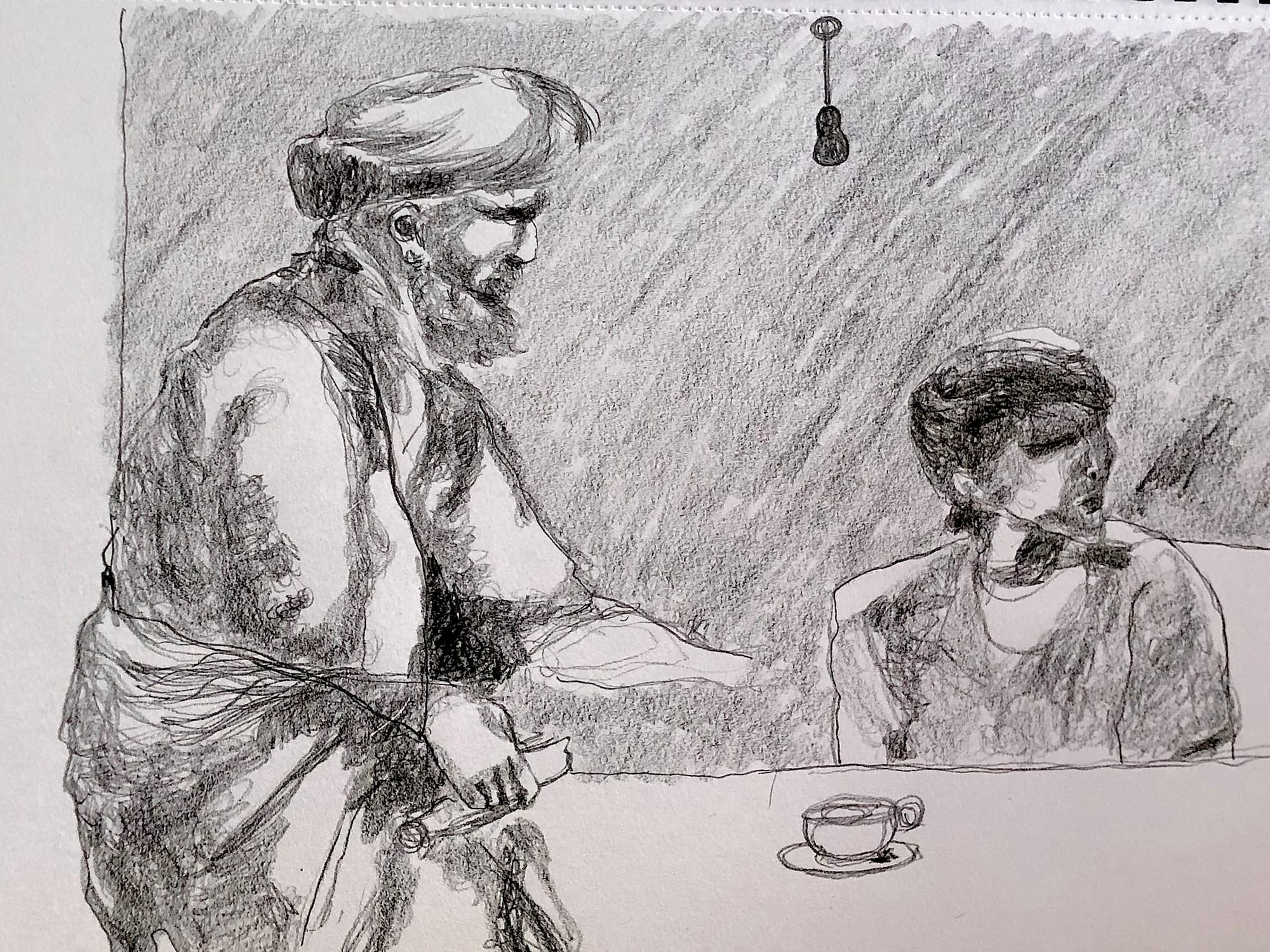
Aaron Preston is interested in the history and historiography of analytic philosophy, ethics and the philosophy of religion. Here he discusses Analytic philosophy, Rorty's and Leiter's views about it, Frege's place, why its defining content is illusory, the problems and fallacies of revisionist accounts, why defining it as 'the separation of the practical and political from the theoretical aspects of philosophical work' doesn't help, why defining it as just 'good philosophy' is no good either, logical positivism, scientism, the illusion of promise, understanding the analytic/continental divide, whether analytic philosophy reduces to western philosophy, whether there is a crisis, its link to the disappearance of moral knowledge and its consequences, Dallas Willard, the role of philosophy of religion, Metaphilosophical Eudaimonism, Personalism, and the tribalism in public discourse.
3:16: What made you become a philosopher?
Aaron Preston: The most significant factor in my becoming a philosopher was my relationship with Dallas Willard, who was a professor of philosophy at the University of Southern California. Academically, he was best known as a Husserl scholar who translated many of Husserl’s early works on the philosophies of mathematics and logic, and who maintained that Husserl was, from beginning to end, a metaphysical and epistemological realist: that he never endorsed psychologism, that Frege’s supposed influence on him in this regard is widely misunderstood, and that he never abandoned realism for transcendental idealism. Dallas was also a profound Christian thinker who wrote and taught about Christian spirituality for nonacademic audiences.
For Dallas, these seemingly disparate endeavors were organically connected, twin aspects of an attempt to present a vision of human flourishing grounded in knowledge of the real. Dallas was a legendary teacher. After his passing in 2013, Scott Soames eulogized him as “that Professor of lore who students hope to find but don’t really expect to – the one who enriches their lives by getting them to see more in themselves, and in life itself, than they had imagined.” That pretty well describes my experience with him. As a freshman, friends had told me that I should really take a course with him at some point before I graduated. So in my sophomore year I jumped into an upper-division course on British Empiricism simply because it was what Dallas was teaching that term. I found myself enthralled both with the subject matter and with his manner of teaching, which really opened the world to me in a new way. I was completely blown away by the breadth of Dallas’ learning, the perceptiveness of his insights, the depth of his wisdom, and also by his character and personal presence. He was the perfect fusion of scholar, saint and sage. By the end of the course I had decided that I needed to at least try to be that sort of person, so I declared a major in philosophy and took as many courses with Dallas as I could.
Soon I was visiting his office hours and telling him about some existential and theological struggles I’d been having. Over time, he taught me how to use philosophical thinking to settle my theological questions. Along the way, he became a mentor and a friend. And he encouraged me to continue in philosophy, which I did. After graduating from USC with a degree in Classics and Philosophy, I took some time to study Theology at the University of Edinburgh. But I eventually returned to USC as a grad student, and completed my doctorate in Philosophy under Dallas’ supervision. We remained in touch until he passed away in May of 2013. And I was honored to be one of three former students to whom Dallas entrusted, literally from his death bed, the completion of his final academic book, The Disappearance of Moral Knowledge (more on which later).
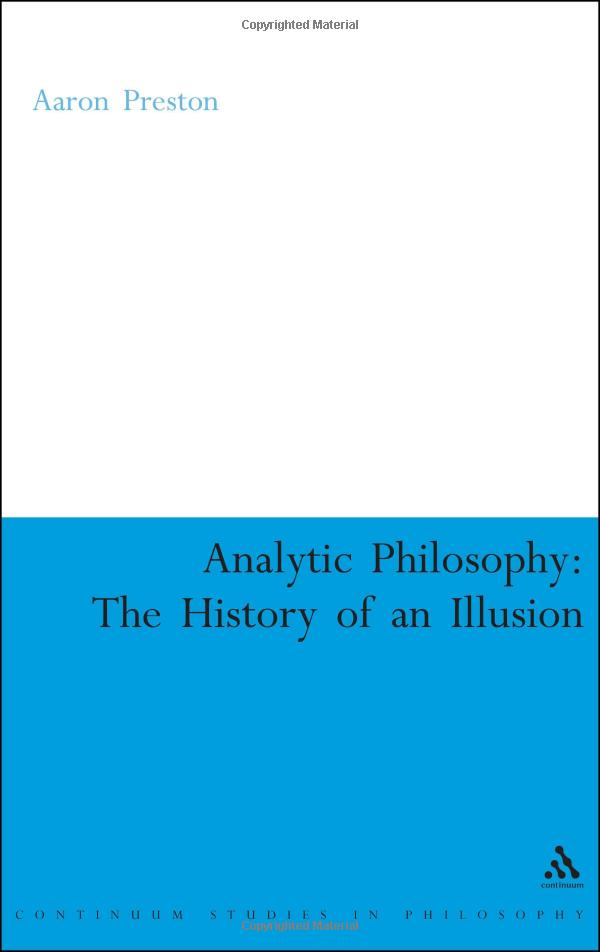
3:16: You’ve written extensively about the nature of Analytic philosophy and its history. You cite Richard Rorty and Brian Leiter as both saying that there’s no principle of unity holding the philosophers designated (and self-designating) as analytic philosophers together. So what’s the thinking behind Rorty and Leiter’s comments, and should we be worried by this?
AP: Questions about the nature of analytic philosophy first arose for me in the course of my doctoral studies. As an undergraduate in the early 1990s, I had double-majored. That meant that I didn’t take as many courses in philosophy as I otherwise might have, and it turned out that I took most of my courses with professors who were more pluralistic and historically oriented than the average analyst of the era. But as a graduate student in the late 1990s, I began to encounter more analysts. Right away I was struck by the difference of approach – the narrowness of focus, the emphasis on a certain sort of technical precision and an associated ideal of clarity, the tendency toward deflationary, naturalistic views, the relative lack of attention to history and to other schools of thought, the restriction of any such attention to generating “rational reconstructions” of non-analytic views, and the frequent irrelevance to real-world concerns, especially those of non-philosophers. I wanted to understand why there was such a difference between analysts and non-analysts in philosophical practice, and what the analysts took to be valuable about their approach.
So I began to ask methodological and metaphilosophical questions. And I received a number of differing answers, none of which I found very illuminating. My next move was to dig into the history of analytic philosophy, to try to understand how and why the analytic approach had been developed in the first place. And I found that analysts had never given good answers to the sorts of questions I was asking. Similar questions had been raised by Susan Stebbing and R.G. Collingwood in the early 1930s, at the Royamount Colloquium of 1958, and again by Richard Rorty in the 1970s, to no avail. The comments to which you refer, from Rorty and Leiter, are from the 1990s and the early 2000s, and they confirm that this void in the metaphilosophical foundations of analytic philosophy persisted through the turn of the 21st century.
Rorty’s 1967 volume, The Linguistic Turn was reprinted in 1992 with a new retrospective essay. There he says that analytic philosophy had long since ceased to be the application of linguistic analysis to philosophical problems, and had become a more or less arbitrary set of problems discussed by a certain professors in certain parts of the world, with no clear set of shared philosophical commitments. And by at least the early 2000s, Leiter had included a section in the Philosophical Gourmet Report explaining that “‘Analytic’ philosophy today names a style of doing philosophy, not a philosophical program or a set of substantive views.” It’s not clear that Rorty or Leiter saw anything terribly problematic with this state of affairs, although a posthumously published lecture that Rorty first delivered in 1994 suggests something disturbing in the vicinity. He says that, after analytic philosophers gave up on linguistic analysis, they remained united only by “a sense of shared know-how, combined with a sense of moral and intellectual superiority to philosophers of other ages and lands.” This, he says, “has sufficed to keep analytic philosophy intact and self-assured for half a century.” I think that’s basically correct, but Rorty failed to see that this had been true of analytic philosophy from the beginning, even during the heyday of “linguistic analysis.”
This strikes me as worrisome. Analytic philosophy has been the ruling paradigm in Anglophone philosophy for the better part of a century now. In combination with its sense of superiority, this disciplinary dominance has enabled analysts to marginalize other approaches. But if the analytic revolution was based merely on a sense of shared know-how that has never been sufficiently articulated or defended, then it would appear that its dominance is philosophically unjustified, that the Emperor has no clothes. Moreover, this would indicate that the Emperor is, in an important sense, an impostor. One of Plato’s complaints against the Sophists (in the Gorgias) is that, in their reliance on oratory, they were operating on the basis of an unarticulated know-how, a “knack” (empeiria) without any rational explanation (logos). This is part of what made ancient sophistry different in kind from philosophy. And as Moritz Schlick observed in a 1932 paper, “every philosophical movement is defined by the principles it regards as fundamental, and to which it constantly refers in its arguments.”
If analytic philosophy is not united around a set of shared philosophical “principles,” then it is not a philosophical movement or school or tradition in the proper sense of those terms. It may qualify as a “philosophical” entity in some secondary or tertiary sense – perhaps in the way that the American Philosophical Association is a “philosophical” entity – but it is not a philosophical school, movement, or tradition in the way Platonism or Rationalism or Absolute Idealism are.
3:16: How does Frege and linguistic analysis fit into this ?
AP: As traditionally understood, analytic philosophy was born in “the linguistic turn.” This was supposed to have occurred around the turn of the twentieth century, in the work of Moore and Russell – and some include Frege – as they developed a powerful, new method for solving or dissolving philosophical problems, a method called “analysis.” “Analysis” was usually prefaced with the adjective “linguistic” or “logical.” But logical analysis came to be understood as “ideal language” analysis, as opposed to “ordinary language” analysis; so, in one way or another, it was all “linguistic analysis.” The turn to linguistic analysis was widely taken to be an epoch-making philosophical revolution, replacing early modern philosophy’s “new way of ideas” with what Wilfred Sellars dubbed “the new way of words.” This audacious view was predicated upon the idea that linguistic analysis was not just a novel and powerful method, but the uniquely correct method for philosophy, and hence that philosophy, insofar as it was a legitimate enterprise, was nothing more than the analysis of language.
Now, historians of analytic philosophy have discovered that this traditional understanding is false in certain key respects. Neither Moore nor Russell made the linguistic turn, and neither did Frege, if “the linguistic turn” is understood as embracing a particular metaphilosophy and methodology. This metaphilosophical position was Wittgenstein’s invention, and it was appropriated, altered, and promulgated with evangelistic zeal by the logical positivists, beginning in the late 1920s. By the mid-1930s it was becoming customary to read Wittgenstein’s “linguistic turn” back into the earlier work of Moore and Russell, and to see these superficially similar but really quite different streams of thought as one united confluence, referred to as “analytic philosophy.” So the category “analytic philosophy” was constructed retrospectively and on the basis of what I’ve called “the illusion of unity.” The illusion of unity was the false impression that analytic philosophers were united around a metaphilosophical and methodological vision centered on linguistic analysis.
It has two dimensions: on the one hand, some core, canonical analysts did not make the linguistic turn at all. On the other, those who did disagreed sharply about what “linguistic analysis” amounted to, but the extent and significance of this disagreement regularly went unnoticed or ignored in the heyday of linguistic philosophy. This is both surprising and ironic, since the disagreements would have been immediately apparent if analysts had subjected their own metaphilosophical views to the same kind of scrutiny that they applied to other philosophical issues. So it’s difficult to see this as anything other than willful disregard. In any case, when Arthur Pap claimed, in 1949, that analytic philosophers were united in “the unanimous practice of the analytic method,” he was dead wrong: there was no single “analytic method” that united analytic philosophers, and there never had been. There was at most a common aspiration to such a method, but that aspiration was never fulfilled in the form of a workable form of linguistic analysis, with widespread buy-in, whose assumptions and implications stood up to philosophical scrutiny. And eventually the analysts stopped trying to fulfill it. They gave up on the whole idea of “linguistic analysis” as a definite method by the late 1970s.
When Schlick talks about philosophical movements being defined by their fundamental principles, he also says that it’s natural for movements to develop in ways that involve the extension and modification of those principles, but that there inevitably comes a point at which it makes sense to ask “whether we should still speak at all of the development of a single movement, and retain its old name, or whether a new movement has not in fact arisen.” Analytic philosophy reached that point when it abandoned its commitment to linguistic analysis. Hence a name-change was in order. But of course that didn’t happen. Philosophers in certain contexts kept self-identifying as analysts, and continued to refer to their approach as “analytic philosophy,” but now with little more than a shared history, itself largely mythical, to unite them.
Frege’s place in all of this is interesting. While he had always been recognized as a sort of forefather of analytic philosophy on account of his influence on Russell, it did not become customary to see him as a founder of analytic philosophy until Michael Dummett started advocating for this view back in the 1970s. To me, what’s most important about Frege’s late elevation is how it demonstrates the flexible and artificially constructed nature of “analytic philosophy” under retrospective and usually motivated construals of the socio-historical landscape of philosophy. While this sort of thing is probably always a factor to some degree in partitioning the social space of philosophy, past or present, it plays a larger-than-usual role in the history of analytic philosophy. Much larger, insofar as the very existence of the category depends on a mostly baseless construal of certain philosophers as having the kind of philosophical affinity that would warrant grouping them together as members of the same school of thought.
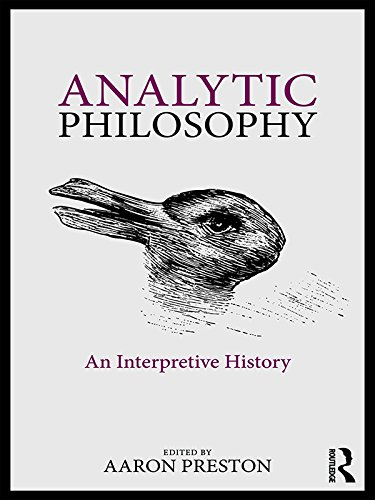
3:16: If you’re right then what follows? Is analytic philosophy empty of any defining philosophical content, always was, and so such grounding content can never be found?
AP: I wouldn’t say that it’s empty of defining philosophical content, but I would say it’s defining content is illusory. When the term “analytic philosophy” started showing up in print in the early 1930s, used as a name rather than a mere description, it was used to refer to a school of philosophy which originated around the turn of the 20th century, in the work of Moore and Russell, championing the use of linguistic analysis as a powerful, preferable, even uniquely correct philosophical method. This was the “social imaginary” that brought the category “analytic philosophy” into being, and which governed the philosophers who worked under its banner for nearly half a century.
In A Secular Age, Charles Taylor describes a “social imaginary” as the way people in a given context imagine their social environment. It provides a “common understanding which makes possible common practices, and a widely shared sense of legitimacy.” This is exactly what the original conception of analytic philosophy did for analytic philosophers. The fact that it was false did not prevent it from defining analytic philosophy for the first five or so decades of the analytic era (~ 1930-1980).
3:16: Why is the self-conception of early analytic philosophy so important, even if false? What are the problems and fallacies with revisionism in this context?
AP: Revisionism exploits the constructed and malleable nature of “analytic philosophy” in ways that create historical distortions. For example, some revisionists have claimed that linguistic analysis was never really that important to analytic philosophy, and have attempted to define it in terms of less unique views or features. But this ends up casting the net too broadly, because the features invoked are inevitably shared by non-analytic philosophers as well, and figures like Aristotle or Thomas Aquinas or even Husserl end up counting as analytic philosophers. Other revisionists claim that analytic philosophy was never a “school,” but some sort of looser association (a “movement” or “tradition”) that does not require shared views. Maybe it’s a tradition unified genealogically, by relations of intellectual influence, or maybe by relations of “family-resemblance,” and so on. But this inevitably leads to the same problem, because relations of influence and of similarity extend well beyond the circle of those commonly recognized as core, canonical analysts.
For instance, if we’re going to say that Frege was an analytic philosopher because of his influence on Russell, then why not Giuseppe Peano? After all, Russell once said that that his encounter with Peano at the 1900 International Congress of Philosophy was the most important event in his intellectual life. And the Wittgenstein of the Philosophical Investigations bears a closer family resemblance to certain Continental philosophers than he does to Russell. Does this make Derrida an analytic philosopher? Or perhaps it makes Wittgenstein a Continental philosopher? Such distortions are problematic in their own right, but also for practical purposes.
There’s a lot about the analytic tradition that’s hard to explain without reference to the original conception. Its power over the minds of early analysts best explains why certain philosophers came to be seen as core, canonical analysts and others not, why analytic philosophy has been characterized by ahistorical and anti-metaphysical tendencies, as well as that sense of superiority, throughout much of its history. Dispensing with the original conception also makes it impossible to adequately explain why the language-game involving “analytic philosophy” originated when and where it did. If analytic philosophy really originated in ancient Athens or medieval Paris rather than in early 20th century Britain, why did we only start talking about it in the 1930s in English? Indeed, in an important sense, the entire history of analytic philosophy depends on this false conception, for without it there would be nothing to speak of today under the heading of “analytic philosophy.” We might be talking about Mooreans, logical atomists, logical positivists, and so on, or even “scientific philosophy” (which was an early 20th century category subsumed and replaced by “analytic philosophy”), but we wouldn’t be talking about any of these under the heading “analytic philosophy.”
Thus, for a historian of analytic philosophy to treat the original, false conception as dispensable is something like a performative contradiction. Additionally, one thing Scott Soames and I agree about is that an important function of historical work on analytic philosophy is to provide a basis for evaluating the tradition, for taking stock of its successes and failures, and for making judgments about how it might do better going forward. But this requires an accurate view of the relevant history, and that’s something revisionism seems incapable of providing. Of special importance to me is the fact that revisionism tends to obscure, and to minimize the significance of, the fact that analytic philosophy came to prominence under false pretenses, that it succeeded in capturing the philosophical profession in Britain and America through what ultimately amounted to a metaphilosophical shell-game. As I see it, that’s something that must be taken into account when evaluating the analytic tradition.
3:16: One aspect of analytic philosophy that seems to differentiate it from other kinds is the separation of the practical and political from the theoretical aspects of philosophical work. It’s a school where moral and spiritual improvement are left outside of analytic philosophy aren’t they, and with it goes the grand theory building too? Isn’t this a good way of defining it, or at least, one important feature of what captures what makes analytic philosophy special, as someone like Soames claims?
AP: Back in 2003, Soames pointed to these features as “underlying themes or tendencies” characteristic of analytic philosophy. This is a heuristically useful generalization, but it will hardly do as a definition, for two reasons. First, it is a standard desideratum that a definition should characterize its target in terms of its most fundamental, positive features. It’s not entirely useless to know that breakfast is a meal that is neither lunch nor dinner, but that doesn’t really illuminate what breakfast is. Likewise, knowing that analytic philosophy is an approach to philosophy that eschews grand, metaphysical system-building and that it is not concerned “to provide a useful recipe for living one’s life,” as Soames once put it, is not useless information, but neither does it really illuminate what analytic philosophy is.
The natural response is to ask why analytic philosophy eschews these endeavors, especially in light of the fact that they were traditionally seen as central to the philosophical enterprise. An adequate answer will have to invoke some positive features of analytic philosophy. The second reason these “characteristic marks” fail to define analytic philosophy is that there are core, canonical analysts who have rejected them. I’ll mention just one: G.E. Moore. Although Moore was not himself a system-builder, this was due to his own limited philosophical interests, rather than to some grand metaphilosophical vision which put system-building out of bounds. To the contrary, in his 1953 book Some Main Problems of Philosophy, he said that 'the most important and interesting thing which philosophers have tried to do is … to give a general description of the whole universe, mentioning all the most important kinds of things which we know to be in it, considering how far it is likely that there are in it important kinds of things which we do not absolutely know to be in it, and also considering the most important ways in which these various kinds of things are related to one another. … the first and most important problem of philosophy is: to give a general description of the whole universe.'
That may be the strongest endorsement of grand, theoretical system-building that I’ve ever seen, from any philosopher of any school. And among the most important kinds of things Moore knew to exist were moral facts. Moore’s Principia Ethica is a canonical – indeed a foundational – analytic text. While much of it is given to what we would nowadays call “metaethics,” it devotes a chapter to what Moore called “practical ethics,” which includes the attempt “to provide a useful recipe for living one’s life.” Moore thought that the pleasures of personal relationship and aesthetic enjoyment are the most valuable things in the world, and hence that we ought to live so as to maximize those pleasures. That these goods were “the rational ultimate end of human action and the sole criterion of social progress” was, for Moore, “the ultimate and fundamental truth of Moral Philosophy.” Incidentally, these two, traditional philosophical endeavors – giving “a general description of the whole universe” and providing “a useful recipe for living one’s life” – are intrinsically connected. As Moore says, giving a “general description…” involves determining the relative importance of things. This sort of rank-ordering of goods, with an eye to the most important, is prerequisite to providing a “useful recipe… .”
3:16: Why isn’t it good enough to pin it down to some normative function (eg analytic philosophy is just good philosophy) ?
AP: Any attempt to define analytic philosophy as “good philosophy” is going to have to justify that judgment by explaining what makes analytic philosophy good (or better, or best), and non-analytic philosophy deficient. So we can’t escape the need to define analytic philosophy in terms of philosophically substantive features simply by saying that it’s “good philosophy.” Moreover, what counts as good philosophy is a contentious issue. So even if we were able to identify some philosophically substantive, good-making characteristics of analytic philosophy, this would not automatically place analytic philosophy in the category of “good philosophy,” to the exclusion of other approaches. Someone would have to provide a plausible argument to the effect that good philosophy is philosophy with such-and-such features, and analytic philosophy is the unique possessor of those features.
While early- and mid-20th century analysts had an argument to this effect, it wasn’t a good one. And I suspect few if any contemporary analysts would be inclined to make such an argument. The attitude of superiority that Rorty mentioned in 1994 has been in decline for the last few decades. Many contemporary analysts see value in other traditions, historical and contemporary, and are actively involved in projects that seek to combine what is best in their own tradition with what is best in others. These are very encouraging developments within the analytic tradition, but insofar as they involve recognition of good but non-analytic philosophy, they point away from any simple identification of analytic philosophy with “good philosophy.”
Finally, while analytic philosophy – especially post-linguistic analytic philosophy – has its virtues, it fails to measure-up to certain traditional desiderata for “good philosophy,” such as those discussed under the previous question. The goods of clarity and rigor must be balanced against other goods that philosophy has traditionally aimed to provide, especially in connection with morality and meaning. Historically, analytic philosophy has prioritized the former to the detriment of the latter. For instance, Paul Arthur Schilpp’s 1959 presidential address to the APA, “The Abdication of Philosophy,” charged the analytic-dominated philosophical profession with a “contemptuous dismissal of ethics and of social and political philosophy.” Schilpp blamed this neglect on analytic philosophy’s preoccupation with language and logical rigor.
Just a year earlier, in his famous lecture “Two Concepts of Liberty,” Isaiah Berlin argued that analytic philosophy’s obsession with rigor had led to a dangerous neglect of “messy” topics like political philosophy, and that this in turn was having “devastating effects” on society. Specifically, he says that it had created space for “fanatically held social and political doctrines” to take root. “When ideas are neglected by those who ought to attend to them,” he warned, “they sometimes acquire an unchecked momentum and an irresistible power over multitudes of men that may grow too violent to be affected by rational criticism.” The kinds of concerns raised by Berlin and Schilpp are just as relevant today as they were in the late 1950s. I can’t read Berlin’s remarks without thinking of both Trumpism and “the Great Awokening” of the last decade. If Berlin and Schilpp were correct that such phenomena naturally result from the neglect of one of philosophy’s traditional functions, and if the rise of analytic philosophy caused or contributed to that neglect, then the idea that analytic philosophy can simply be identified as “good philosophy” is pretty implausible.
Of course, analytic philosophy has come a long way since the late 1950s, and it can no longer be accused of neglecting ethics and political philosophy, exactly. But for a variety of reasons – some historical and some contemporary, some internal to the analytic tradition and some external to it – it is still failing to provide the moral and political wisdom that we so desperately need. Even Scott Soames has recently acknowledged (in the Foreword to Willard’s The Disappearance of Moral Knowledge) that analytic philosophers have not made contributions to moral knowledge on par with their contributions in other areas, and he suggests that the analytic tradition should “reassess and redeploy” its own resources to shoulder “a greater share of the contemporary burden of articulating a compelling moral vision.” I’m not sure that analytic philosophy is well-suited to that task, as I think it requires a kind of coarse-grained, or low-resolution, systematicity that analytic philosophy has tended to abhor. But I’m delighted to see a leading analyst acknowledging the need for it.
3:16: In the popular mind, and for some philosophers hostile to the analytic tradition, the logical positivists are still trotted out as what analytic philosophers really are – philistine, ahistorical, and cold even though it was analytic philosophers themselves that sort of blew the logical positivists away pretty quickly. What’s the role of the logical positivists in this history of an illusion?
AP: It’s a mistake to reduce analytic philosophy to logical positivism, not least because logical positivism has a fairly clear set of defining views capable of being articulated, debated and refuted. And yes, as you note, other analytic philosophers played a role in refuting positivism. Analysts sometimes see the fact that their tradition has repeatedly transformed itself in response to internal criticism as a badge of honor, an indication that it’s a self-correcting tradition, like the empirical sciences. But that’s a little too self-congratulatory. The fact that none of the analytic tradition’s most characteristic views – e.g., those associated with logical atomism, logical positivism, ordinary language analysis – were capable of standing against criticism for more than a decade or two suggests that analytic philosophers, at least in the formative decades of the tradition, had a real knack for selecting implausible theories.
If you hitch your wagon to an implausible view, it does not redound to your credit when you finally acknowledge problems so obvious they should have prevented you from endorsing it in the first place. Even less if you do that repeatedly. Indeed, the fact that logical positivism was able to thrive for two decades or so within the analytic tradition might be seen as indicating not responsiveness to criticism, but stubborn resistance to it. The phenomenologist Roman Ingarden raised absolutely devastating arguments against the positivists’ verificationist theory of meaning at the 1934 World Congress of Philosophy. Carnap and Neurath were present, and gave some (inadequate) responses. A version of the same argument was given by Isaiah Berlin before the Aristotelian society in 1939. But the positivists went on for two decades or so, promoting verificationism as if it was a basically well-founded position that just needed a few minor adjustments.
You asked about logical positivism’s role in the illusion. Logical Positivism epitomized a broader and more general scientistic mentality that, I believe, was largely responsible for the illusion of unity. The idea that analytic philosophers had a common, linguistic method was based ultimately on little more than similarities in the sense-perceptible features of philosophical practice among analysts. In a 1963 essay, Peter Strawson says something striking. He says that “it does not matter much” what we say the objects of philosophical analysis are – sentences, propositions, etc., “for, however we describe the objects of analysis, particular analyses … always looked much the same. A sentence, representative of a class of sentences belonging to the same topic, was supposed to be elucidated by the framing of another sentence.” Deliberately ignoring what we have since recognized as substantive philosophical differences among the early analysts concerning the ontology of meaning, Strawson focused entirely upon empirical features of the expression of particular analyses, which happened to consist in superficially similar patterns of (mostly linguistic) behavior and their symbolic components and products. Only by emphasizing these surface features of the practice of “analysis” while ignoring the theoretical disagreements lurking just beneath them was it possible to see a common analytic method.
So one might say that a generic positivism was responsible for the illusion of unity. Logical Positivism’s relationship to this generic positivism, or scientism, is complex, and differs between the British and American contexts.
3:16: Scientism is another root of the illusion isn’t it? Can you say what you mean by scientism and explain the role it played – in particular the role of Newtonian physics and experimental psychology?
AP: By “scientism” I understand the view that empirical science is our best or only source of knowledge in specie. For instance, I take Bertrand Russell’s claim, in his 1935 book Religion and Science, that “what science cannot discover, mankind cannot know,” to be a paradigmatic expression of scientism. I mentioned previously that Logical Positivism epitomized a broader and more general scientistic mentality that was largely responsible for the illusion of unity. This broader scientism arose largely as a response to Newtonian physics, which combined rigorous empirical observation with mathematical precision. Newton himself did not endorse scientism, but many became so enthralled with his scientific work that they adopted it as a “paradigm” in roughly Kuhn’s sense, not just for physics, but for knowledge in specie. This was back before most of our contemporary disciplinary divisions had been devised, and Newton’s work was counted as a branch of philosophy.
So the idealization of Newton’s approach to knowledge of the motions of physical bodies flowed easily into what we would now consider to be other disciplinary areas, including “humanities” disciplines like history and philosophy. The British empirical tradition, from Locke through Hume, was an effort to employ this paradigm in philosophy, and it was closely allied to associationist psychology. Both took introspection to be a legitimate method of inquiry. But with the rise of experimental psychology around the turn of the 20th century, introspection was firmly rejected as a source of knowledge. That put associationist psychology out of business, and sent science-minded philosophers in search of a new way to reconcile philosophy with empirical science. This required a new way of approximating the Newtonian paradigm within philosophy.
What eventually emerged under the heading “analytic philosophy” was one response to this predicament. Upon reading Principia Ethica, Lytton Strachey praised Moore for deliberately applying “the scientific method… for the first time, to Reasoning.“ In a 1928 essay, Russell places the origins of what, in the 1930s, was to be designated “analytic philosophy,” in the context of a wider and more general drive toward a scientific philosophy. Later, Geoffrey Warnock observed that “the search for philosophical analyses always took the form of an attempt to formulate a sort of linguistic equation,” which was the idealized way of expressing a scientific law under the Newtonian paradigm. In general, it’s clear that a large part of the appeal of early analytic philosophy was its way of approximating scientific rigor as that was understood under the Newtonian paradigm.
3:16: You talk about the ‘illusion of promise’. What is this, and in particular its link to the ‘paradigmatic turn’?
AP: The illusion of promise is the false impression that the linguistic turn was a good idea, that it would set philosophy on a firm footing and facilitate definitive resolutions of philosophical problems, etc. The views associated with the linguistic turn – that philosophical problems are really just linguistic confusions, that linguistic analysis is capable of dispensing with them, and that philosophy is really nothing more than the analysis of language – have so little to recommend them that one must look elsewhere to understand why they seemed so promising to a large number of Anglophone philosophers in early 20th century. Seeing the linguistic turn as a ploy to secure philosophy’s status in an increasingly scientistic milieu helps to explain this. It also helps to explain why analytic philosophers felt no need to articulate and scrutinize their foundational, methodological assumptions.
In an insightful paper on the analytic/Continental divide, Neil Levy observes that analytic philosophy has tended to function like Kuhnian “normal science,” which is science conducted under an established paradigm. While philosophy has traditionally demanded that philosophers pay attention to the presuppositions of philosophizing itself, normal science simply takes its foundational assumptions for granted. That is part of what it means to work under a paradigm, and it’s a decidedly unphilosophical approach to knowledge. What I call “the paradigmatic turn” is this turn to operating on the model of normal science, and it’s as much a part of the history of analytic philosophy as is the original, false self-conception, the illusion of unity, and so on. This helps to explain why analytic philosophers have been so comfortable operating on a basis of unarticulated “know-how” ever since the category “analytic philosopher” came into being.
3:16: So how should we understand the often rather fraught analytic/continental divide? Does your illusion thesis reduce it to merely a way of trading insults?
AP: I don’t think illusionism reduces the divide to a way of trading insults, but it might highlight the extent to which the opposition between “analytic” and “Continental” is artificial and historically grounded in insulting judgments and attitudes. As I understand it, the category “Continental philosophy” was constructed by mid-century British analysts with the same sort of inattention to significant philosophical differences that facilitated the construction of “analytic philosophy” two decades earlier. Just as the label “analytic philosophy” facilitated the lumping together of diverse thinkers for purposes of approval, “Continental philosophy” facilitated the lumping together of diverse thinkers for the purpose of disapproval and dismissal. It was basically a way of designating certain thinkers as unworthy of serious attention. So an element of insult was there from the beginning. And once the analysts had set that tone, “Continental” thinkers were often willing to return the favor.
That’s not to say that there weren’t real philosophical differences involved, just that the mid-century analysts by and large weren’t interested in working through them as if the “Continentals” were intellectual peers. The reversal of this attitude among at least some analysts over the last two or three decades is one of the most promising developments in the analytic tradition. I am especially heartened by work that aims to retrieve Husserl’s original phenomenological project and to bring it into conversation with relevant analytic work in various fields: epistemology, philosophy of mind, and so on. In terms of substantive philosophical disagreements, illusionism highlights the role of scientism in the analytic tradition, and scientism is one important point of philosophical divergence between the two traditions. There are many others as well, pertaining to the nature and/or philosophical significance of logic, language, consciousness and the mental, the “life world” and its political dimensions, and so on.
Of course, you’re not going to find perfect unanimity on any of these topics on either side of the divide, but you will, in the usual case, find “central tendencies” that make for “characteristic” or “mainstream” views at a certain level of generality. And of course non-philosophical factors also played a role in creating and sustaining the divide, especially surrounding the two World Wars and the Cold War. In general, I think we should try to understand the divide as the multi-faceted phenomenon that it was and is. It’s not fully explicable in terms of antagonistic attitudes, philosophical disagreements, or accidents of history taken alone. All of these dimensions, and perhaps others, must be taken into account.
3:16: Analytic philosophy also often gets called ‘western’ philosophy, even Anglo/American, but does your thesis put paid to that idea too, especially at a time when we see many new ‘analytic philosophers’ working outside Anglo/American universities and working on areas nothing to do with ‘the west’, such as Indian or Chinese philosophy?
AP: I think that the designation “Anglo-American” still has a point, as it correctly identifies the locations or populations in which analytic philosophy originated and rose to prominence. However, it is increasingly inapt, as the analytic approach has caught-on in places outside the English-speaking world, like Latin America and parts of Europe. As a rule, philosophical labels tied to geographical regions are less useful than labels that have something to do with the content of the ideas that are at issue.
I’m not sure that analytic engagement with non-western thinkers makes analytic philosophy any less “western.” There are big questions about whether the rational reconstructions characteristic of analytic engagement with non-analytic thinkers, western or not, distort their subject matter. So these studies might be best construed as distinctively western approaches to non-western thinkers. I don’t have a strong opinion on this, largely because I don’t know enough about most non-western traditions to have an informed opinion. But it’s an issue one has to wrangle with. I do, however, have a strong opinion about the identification of analytic philosophy with western philosophy.
Of course it’s a species of that genus in virtue of its genealogy and its major loci of socio-historical manifestation, but analytic philosophy departs from historical norms of western philosophy in some very significant ways. In my view, this makes it a poor representative of the western philosophical tradition.
3:16: So if it’s difficult to pin down what analytic philosophy really is all about, is there a crisis? Is doing its history a response to the idea that there is a crisis, and that a lack of grounding for the school suggests we are entering a post-analytic time for philosophy, as people like Putnam was claiming as far back as the 90’s – the very decade when the history of analytic philosophy started in earnest?
AP: From the traditional philosophical standpoint, which insists that we pay philosophical attention to the presuppositions of philosophizing itself, it’s reasonable to say that analytic philosophy has always been in a state of (meta-)philosophical crisis on par with what Husserl called “the crisis of the European sciences.” With the demise of linguistic philosophy, this situation became increasingly conspicuous, but, by and large, analytic philosophers have consistently refused to acknowledge it as a crisis. In the 1990s, there was something like a brief moment of panic. On the one hand there was a growing recognition that what Stebbing, Collingwood, and Rorty had been saying was indeed true, that analytic philosophy had no identifiable, philosophical core. On the other, you had prominent analytic figures, like Putnam and Hintikka, declaring that analytic philosophy had reached an effete stage and that it was in need of renewal. For a short spell there was some talk about “post-analytic” philosophy, and even a “Centre for Post-Analytical Philosophy” at the University of Southampton. But that was given up rather quickly. Although the term “post-analytic” is still sometimes used in association with philosophers who, like Putnam, started drawing on Pragmatism or other non-analytic traditions to find a way forward, no real “post-analytic” movement or era emerged.
Rather than abandon the label “analytic,” philosophers working under it simply started extending it to cover previously excluded forms of philosophical inquiry. Philosophy of religion and metaphysics were already making a comeback. Work on the history of philosophy, on Continental thinkers, and so on began to appear more frequently, but now in ways influenced by the analytic preoccupation with rigor and clarity (which has both pros and cons). Studies of individual analysts—especially Frege and Wittgenstein—appeared throughout the 70s and 80s, but little was done in the way of systematic reflection on the history or nature of analytic philosophy as a whole. This began to change in the 1990s, which is when the history of analytic philosophy began to emerge as a distinct research area. I think it’s accurate to say that this development was driven in part by recognition of the analytic tradition’s metaphilosophical void. But this was not universally seen as a matter of crisis.
Because I accept more traditional philosophical norms, I do see it as a crisis, and one intrinsically related to some of the other characteristic deficiencies of philosophy in the analytic tradition, as discussed in connection with previous questions. As I see it, those deficiencies have contributed to the emergence of social problems that I suspect will garner greater recognition as crises, such as the rise of “post-truth” culture and political polarization in the west. These are consequences of “the disappearance of moral knowledge.” While the analytic tradition did not by itself cause this disappearance, it did make a powerful contribution by “abdicating” a key task of philosophy as traditionally understood, as Schilpp and Berlin pointed out back in the late 1950s.
3:16: You think a key area of philosophical importance – one that genuinely hits everyone, philosophical or not – is the disappearance of moral knowledge. This might strike some as a strange diagnosis as the public discourse seems mired in moral language – but you think governments, professions and universities no longer operate with faith in moral knowledge. Can you sketch for us your thinking here?
AP: When Willard spoke of “the disappearance of moral knowledge,” he was referring to a social condition, characteristic of 20th century western societies, in which the major institutions tasked with guiding society have ceased to operate on a basis of moral knowledge, and fail to make moral knowledge available to the public. Of course, individuals may have moral knowledge under these conditions, but it’s hard to see how the ease and regularity with which individuals acquire such knowledge would remain unaffected. Willard is not alone in identifying a significant and problematic shift in public morality in the 20th century, but his framing of the situation as primarily a matter of the status of moral knowledge, rather than behavior, character, practices, etc., is fairly unique. Of course, all those other factors matter too, but Willard’s view was that only knowledge confers genuine authority to prescribe and proscribe moral ideals and relevant practices for shaping character and behavior. So it’s the institutional availability of moral knowledge that Willard puts front and center.
Now, it’s a matter of fairly straightforward historical fact that there was a sea-change in the institutional availability of (purported) moral knowledge between the last quarter of the 19th century and the first quarter of the 20th. The historian Julie Reuben has chronicled this shift in great detail in her book The Making of the Modern University. At the beginning of this period, it was widely accepted that moral knowledge was not only attainable, but that a significant amount had been attained. And it was made available by important social institutions, including educational institutions at all levels. But by the end, universities were restructuring their curricula around the fact-value distinction, and were beginning to treat morality as a matter of feeling rather than fact. Other key institutions were soon to follow suit. The resulting social condition is consistent with the retention of moral language, corresponding moral attitudes, and even with a high degree of moralism in public discourse.
On this point, one might recall the striking opening of MacIntyre’s After Virtue, in which he compares the status of moral discourse in the late 20th century to a world in which our current scientific knowledge has been largely lost, with only scattered fragments remaining. Under such conditions, people continue to use those fragments, but in ways that are not consistent with the contexts of thought and practice that produced them in the first place. The result looks nothing like natural science as we know it. Rather, it’s an assemblage of arbitrary parts that do not form a coherent whole, and do not function well together. According to MacIntyre, this imagined situation mirrors the actual state of moral discourse since the late 20th century. The upshot is that “we possess … simulacra of morality, we continue to use many of the key expressions. But we have – very largely, if not entirely – lost our comprehension, both theoretical and practical, of morality.”
To make MacIntyre’s proposal more concrete, consider that, in the analytic tradition, the cultural shift away from moral knowledge manifested in a preoccupation with “meta-ethics” in the original sense of that term – i.e., study of the function(s) of moral language – and a corresponding proliferation of noncognitivist and anti-realist views. On noncognitivism, moral language does not make factual claims, but it does perform any number of other functions. Thanks largely to C.L Stevenson, one of the most widely recognized alternatives is non-rational persuasion. This is basically the attempt to cause others to change their attitudes of approval or disapproval on the basis of something other than truth-indicative reasons and evidence. That “something other” usually involves an appeal to feeling, such as a desire to be accepted (or to accrue the benefits of acceptance), or to avoid being rejected (or to avoid the costs of rejection), by certain persons. The twin phenomena of “canceling” and “virtue signaling,” which have become so common over the last decade, are examples of non-rational, moralistic persuasion at work. Problematic as they are, their power – at least in the short-term – is undeniable. Thus, insofar as the power to persuade is incredibly useful, there’s a strong, pragmatic reason why moral language and even moralism would persist in the absence of genuine moral knowledge.
As I see it, the persuasive functions of moral language have taken center stage in what passes for “public discourse” today. This is the natural result of our leading cultural institutions having denied the reality of moral knowledge, both in theory and in practice, for the better part of a century. If we were treating the moral domain as a domain of knowledge, we’d be paying a lot more attention to the evidentiary bases of our moral claims. But one conspicuous aspect of our highly moralized public discourse is the extent to which matters of evidence and justification are ignored, and even violently resisted.
Consider how dissenters from “progressive” narratives concerning racial inequality, transgenderism, or any number of “social justice” issues, have been treated in various spheres of “public discourse” over the last decade or so. I’m thinking of people like Adolph Reed, Roland Fryer, Heather MacDonald, Glenn Loury, John McWhorter, Holly Lawford-Smith, Kathleen Stock, Rebecca Tuvel, Alex Byrne, and many others. These are highly intelligent people who present reasoned opposition to perspectives which, without any real evidence or argument, have managed to get themselves accepted as established truths by an appreciable number of people. But rather than engaging dissenters intellectually, proponents of “progressive” positions resort to demonizing and “canceling” dissenting voices. The pattern of moral denunciation without rational justification characteristic of “cancel culture” shows that we are not operating in the domain of moral knowledge, but in the realm of dogma and of “bullshit” in the late Harry Frankfurt’s sense – the domain of (apparent) truth-claims made to advance one’s own agenda, whatever it may be, without any real regard for truth.
Of course there is a parallel problem on the political right. Here the moralism tends to have nationalistic bent, appealing to traditional American values and ideals. Now, I’m in favor of most of what people have in mind when they talk about traditional American values and ideals. I think these can be items of genuine moral knowledge. But, due to deficiencies of moral or intellectual virtue, relatively few proponents of these values relate to them as items of knowledge. Instead, they relate to them as aspects of tradition or identity. This is illustrated most vividly by Donald Trump and his die-hard supporters, whose respective capacities to produce and consume bullshit defy belief. But think also of the “public discourse” surrounding “wokeness,” Critical Race Theory, Socialism, Marxism, and the like. I think there’s plenty to object to under these labels. But rather than trying to get clear on the ideas originally associated with them and subjecting those ideas to rational scrutiny, pundits on the right have preferred to use them indiscriminately in order to demonize an ever-expanding array of “things conservatives don’t like.” Perhaps this serves the purpose of short-term political expediency insofar as slapping a label like “CRT” on something can be counted on to mobilize conservative opposition. But it undermines the higher aims and commitments of democratic government, including the very values that conservatives purport to champion. Such is life in our “post-truth” world.
A number of people have tried to address these sorts of issues as if they were solely epistemic problems. And of course they do have obvious epistemic dimensions. But our “post-truth” problems have moral dimensions as well, and these two dimensions are deeply intertwined. Epistemology itself has normative implications. Truth-seeking requires that we abide by an epistemically-sound “ethics of belief” pertaining to responsible belief-formation and -maintenance. And both truth-seeking and truth-telling require a certain type of character and moral commitment. Thus, to govern a life, or a polity, in accordance with truth requires not only the epistemic means but also the moral will to seek, to speak, and to act upon, truth. But neither set of requirements will be satisfied en masse among the populace without strong institutional support that includes treating morality as a field of publicly available knowledge.
3:16: Sociologically there seems to be evidence that the secularization thesis of the eighties hasn’t panned out as expected and that religion can still mobilize a lot of people’s thinking. Do you think philosophy’s unwillingness to address religious belief has played a role in the current disappearance of moral knowledge?
AP: Yes, but qualifiedly so. Religion is a mixed bag that includes not only a variety of diverse systems of belief and practice, but , within most of those systems, much that is good and much that is not. Religious belief is neither necessary nor sufficient for possessing moral knowledge or for being a moral person. Even so, religion plays an important role in the moral lives of human beings considered in the aggregate, and it’s not clear that it is eliminable without significant loss. If that’s right, failure to engage religion in a respectful and constructive manner is a serious error, and one that the analytic tradition has committed in spades throughout much of its history. But the fault is not entirely on the side of philosophy.
The divorce of faith from reason and knowledge that began with the late medieval nominalists and reached its apogee under 20th century scientism, concurrent with the rise of analytic philosophy, has had a devastating effect on moral knowledge. The kind of dogmatism and fanaticism that results from the divorce of faith and reason is something we can do without. (Of course this isn’t unique to religion. Right-wing nationalism and left-wing “wokism” channel the same, unfortunate human tendencies. For this reason, the latter especially has invited comparisons to religion from commentators like John McWhorter and Andrew Doyle.) More significant than the refusal to address religious belief in the conventional sense is analytic philosophy’s refusal to countenance what might be described as a religious mode of thinking. On what has been called a “functional” understanding of religion, a religion is a comprehensive belief system that addresses ultimate questions about the meaning of human existence in ways that give rise to duties of conscience.
With something like this understanding of religion in mind, Scott Soames has observed that that “[p]hilosophy has sometimes been thought of as a discipline that shares the highest aspirations of both science and religion,” seeking to ground a vision for human life in a deep knowledge of reality. I call this vision of philosophy “metaphilosophical eudaimonism,” and its rejection by not only the analytic tradition, but the entire intellectual edifice of the west as it entered the 20th century, has much to do with the disappearance of moral knowledge.
3:16: Ok, so Metaphilosophical Eudaimonism – what is this and why do you think it’s so important – is this the particular approach to morality that you think has been eroded and why has this happened?
AP: The term “eudaimonism” is usually associated with ancient Greek ethics and some strains of contemporary virtue ethics. It designates a general theoretical outlook which takes “well-being” or “flourishing” to be the ultimate point of reference in determining how humans should live, both individually and corporately. I contend that eudaimonism is not limited to “ethics” narrowly understood, but was bound up with the early development of philosophy in such a way that it shaped the nature of philosophy itself. Hence, “metaphilosophical eudaimonism.”
For the metaphilosophical eudaimonist, philosophy is intrinsically connected to flourishing in two main ways. On the one hand, philosophizing is partially constitutive of flourishing in that it involves the exercise of the human being’s distinctive cognitive capacities, along with training in the virtues or excellences needed to use them well. On the other, flourishing is taken to be the ultimate end of philosophizing. In the ancient world, philosophy’s overarching task was to discover the nature of human flourishing along with the means of attaining it, and then to implement those means so as to attain flourishing. This is what’s behind the fact that philosophy in the ancient world was always connected to a “way of life.” In recent decades, a number of scholars – Pierre Hadot, Martha Nussbaum, Alexander Nehamas, John Sellars, John Cooper – have sought to remind us that philosophy was originally a way of life involving practices aimed not only at the production of theory, but at the shaping of one’s character in light of the theory produced.
Respect for the intrinsic value of truth and knowledge were certainly part of the original philosophical outlook, but the ancients weren’t simply trying to discover truth for its own sake. The ultimate goal was to live in accordance with truth, especially the truth about human flourishing. Now, it turns out that this task requires a deep understanding of human nature in relation to the larger orders (social, cosmic, etc.) that humans inhabit. So there are plenty of subsidiary, intellectual tasks included within philosophy’s overarching, eudaimonistic, task. You have to do metaphysics, epistemology, logic, political theory, and so on.
Metaphilosophical eudaimonism does not reduce philosophy to ethics, but it does make ethics (broadly understood) central to philosophy. Ultimately, all subsidiary learning must be brought to bear upon the question of how to live rightly, if philosophy – the love of wisdom – is to be worthy of its name. This is what you see Plato doing throughout his corpus, but especially in the Republic. For Plato, the overarching task of philosophy is the use of reason to arrive at a comprehensive “worldview” that (i) locates human life in the context of the larger orders it inhabits and (ii) orients it toward the good, both cognitively and behaviorally. That’s metaphilosophical eudaimonism.
Over time, as subsidiary philosophical inquiries gave rise to new disciplines, metaphilosophical eudaimonism became the guiding framework not just for “philosophy” as a discrete discipline, but for all knowledge-seeking disciplines in the western intellectual tradition. All were understood as organically ordered to the ultimate end of attaining and applying wisdom in the service of human flourishing. This understanding of the nature of philosophy, of the broader quest for knowledge to which philosophy gave rise, and of the corresponding aims of learning and education generally, persisted in varying degrees in western culture until the turn of the twentieth century. For instance, a college education in 19th century America culminated in a “capstone” course in moral philosophy, whose aim was to draw all learning together into a coherent worldview presenting human life as oriented toward moral and spiritual ends, and to convey a sense of how one ought to live as a denizen of that sort of world.
However, metaphilosophical eudaimonism, along with associated practices and institutional forms, was abandoned in that ~50 year transitional period around the turn of the 20th century in which moral knowledge also disappeared – and the connection is not accidental. During this period, many factors, but especially a rising demand for scientifically trained specialists, led American colleges to alter their curricula in ways that transformed them into modern research universities. And the required moral philosophy course was one of the first casualties of curricular reform. This constituted a de facto rejection of metaphilosophical eudaimonism by the American university. And this de-centering of moral knowledge proved to be the first step in its ever-increasing marginalization, first within the university, and eventually in society. Meanwhile, within the discipline of philosophy, most of the major 20th century schools backed away from metaphilosophical eudaimonism as well, albeit in diverse ways and to varying degrees.
In the analytic tradition, this is most visible in its original, linguistic metaphilosophy, and its “abdication” of traditional philosophical tasks related to moral knowledge and training.
3:16: Personalism was a philosophical stance adopted by, among others, Martin Luther King Jr and played a big part in the Civil Rights movement of the time. First, can you sketch for us what this position claims and how it links with the Metaphilosophical Eudaimonism you discussed above?
AP: Personalism emerged in the 18th and 19th centuries. It began as a defense of the Judeo-Christian idea of a personal God against the impersonal or quasi-personal construals of ultimate reality associated with Spinoza and Hegel. But it soon turned to a defense of the full reality and dignity of finite persons against the acosmic tendencies of monism, and later against the reductive tendencies of scientific naturalism. The Personalists saw both as incompatible with core features of personhood, like being an independent center of consciousness and intelligent agency. And since they took the capacity for intelligent agency to be the basis of human dignity, the concern was simultaneously metaphysical and ethical. Indeed, as I see it, the movement was largely driven by the attempt to construct a comprehensive philosophical “worldview” capable of doing justice to the facts that humans are persons, and that persons are bearers of that special sort of value that we call “dignity.”
As a retrospective generalization, I think it’s fair to say that Personalism’s overarching concern was to determine what must be true of human beings, and of the larger orders we inhabit, in order for that value to be both fully real and fully realized. That makes it a form of metaphilosophical eudaimonism. Like all significant philosophical movements, Personalism gave rise not to a single, “orthodox” position, but to a number of competing variations on a common theme. Some Personalists (Lotze, McTaggart) tried to get by with person-friendly variants of Absolute Idealism. Others were Berkeleyan Idealists (Borden Parker Bowne), existentialists (Gabriel Marcel), phenomenologists (Max Scheler), or Thomists (Jacques Maritain), and some combined phenomenology and Thomism (Edith Stein, Karol Wojtyla/Pope John Paul II). So there was a pluralism to Personalism. But there was a strong overlapping consensus around the fundamental phenomenon of personhood and its main features, especially as given in our immediate experience of ourselves and others.
Personalists also tended to agree that, in order for personhood to ground dignity, it had to be a fundamental, irreducible reality, first in the orders of being, knowledge and value. In the usual case, this was taken to imply that ultimate reality itself was personal in nature. Consequently, most personalists were theists, with a living connection to a religious tradition. Those operating in the Judeo-Christian tradition, like King, could move freely between religious language about humans being made in the image of God, and Personalist analyses of human personhood: to be made in the image of God was to be a person.
To my mind, what makes Personalism worthy of attention is the fact that its metaphysically-grounded moral vision for human life drove a number of really significant moral advances in the 20th century. The founders of The Catholic Worker movement – Dorothy Day and Peter Maurin – were Personalists. The Personalism of Emmanuel Mounier and Jacques Maritain was the driving force behind the UN’s Universal Declaration of Human Rights. John Paull II’s Personalism played a crucial role in the Solidarity movement in Poland, which paved the way to the fall of the Soviet Union. And King’s Personalism informed the non-violent wing of the Civil Rights movement. So, remarkably, just as the major institutions of western culture were losing faith in moral knowledge, Personalists were busy deploying a body of philosophically-grounded moral knowledge, focused on the dignity of the human person and usually presented as a form of natural law theory, to great practical effect.
3:16: Do you think a return to these positions would help erode the growing tribalism of political discourse and give a better set of tools for thinking about the major issues confronting us at the moment?
AP: I do. While many factors contribute to this tribalism, the fact that our institutions haven’t been paying morally serious attention to morality for most of the last century is a huge contributing factor. And the problem isn’t going to be solved by mandating an ethics class or two, taught in any of the modes now standard in philosophy. We need a re-centering of the ethical domain in human life, and that’s not going to happen – at least not in a morally acceptable way – without a knowledge-driven, institutional re-centering of the ethical that will inevitably look a lot like a return to metaphilosophical eudaimonism. The need for systemic or structural or institutional change is something that that the progressive left gets right. Unfortunately, their vision for change is characteristically coupled with deeply flawed views about the natures of human beings and of the larger orders we inhabit, and hence about appropriate means and ends in the pursuit of human flourishing.
As I see it, Personalism does markedly better in these respects. And unlike so-called “Critical Social Justice Theory,” it has a proven track record of generating positive social change. In The Coddling of the American Mind, Greg Lukianoff and Jonathan Haidt outlined how the rise of “intersectional,” identitarian thinking on the left has given rise to “common-enemy identity politics,” and they suggest that what we need is a “common-humanity identity politics” in the spirit of Martin Luther King, Jr. That’s a fine idea, but they ignore the fact that King’s “common-humanity identity politics” was grounded a Personalist view of our common humanity, and that we presently lack any vision of our common humanity capable of playing the same grounding role.
In his first book, King says very explicitly that “Personalism’s insistence that only personality—finite and infinite—is ultimately real … gave me a metaphysical basis for the dignity and worth of all human personality.” For King, this had clear implications for how we ought to conduct ourselves in both the personal and political spheres of life. His opposition to racism and militarism, his commitment to nonviolence and to a Social Democratic vision for economic justice – all of these were natural outgrowths of his Personalism. But, thanks largely to the influence of 20th century scientism, the west currently lacks a shared understanding of our common humanity, and of reality generally, capable of grounding a moral vision like King’s.
A version of Personalism, reinvigorated by the insights of analytic philosophers who endorse non-reductive and even non-naturalistic perspectives on the human person, could be just what we need to make “common humanity identity politics” a reality. Perhaps it could even get things moving in the direction of King’s larger vision.
3:16: And for the readers here at 3:16, are there five books other than your own that will take us further into your philosophical world?
AP: 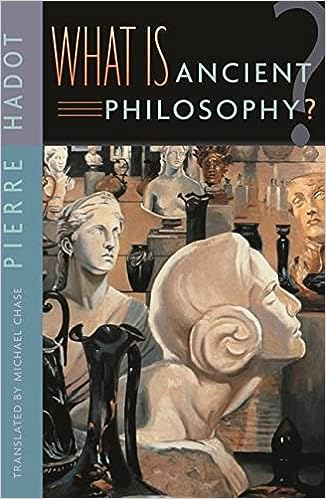
Pierre Hadot, What is Ancient Philosophy?
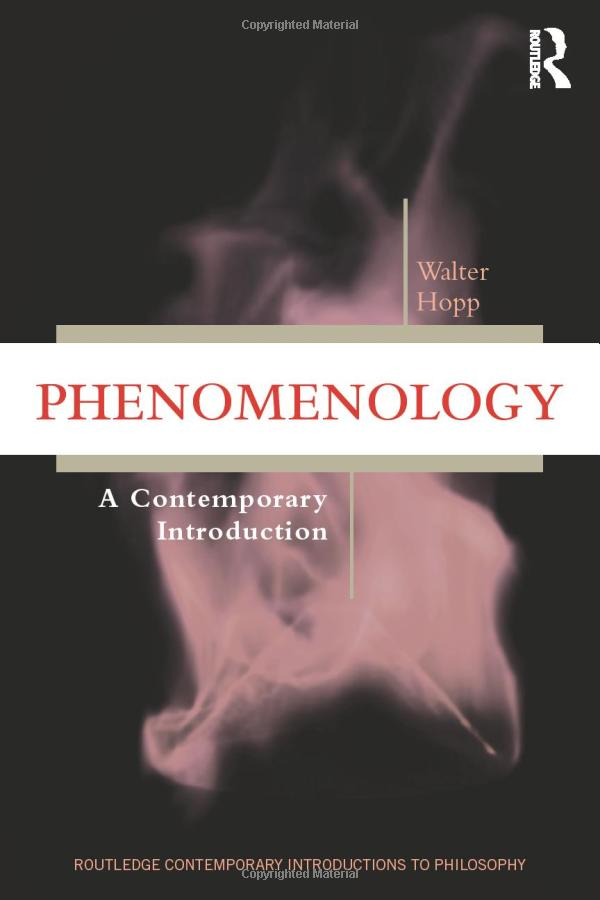
Walter Hopp, Phenomenology: A Contemporary Introduction
Juan Manuel Burgos, An Introduction to Personalism
Carl Trueman, The Rise and Triumph of the Modern Self
Joshua Rasmussen, Who Are You Really? A Philosopher’s Inquiry into the Nature and Origins of Persons.
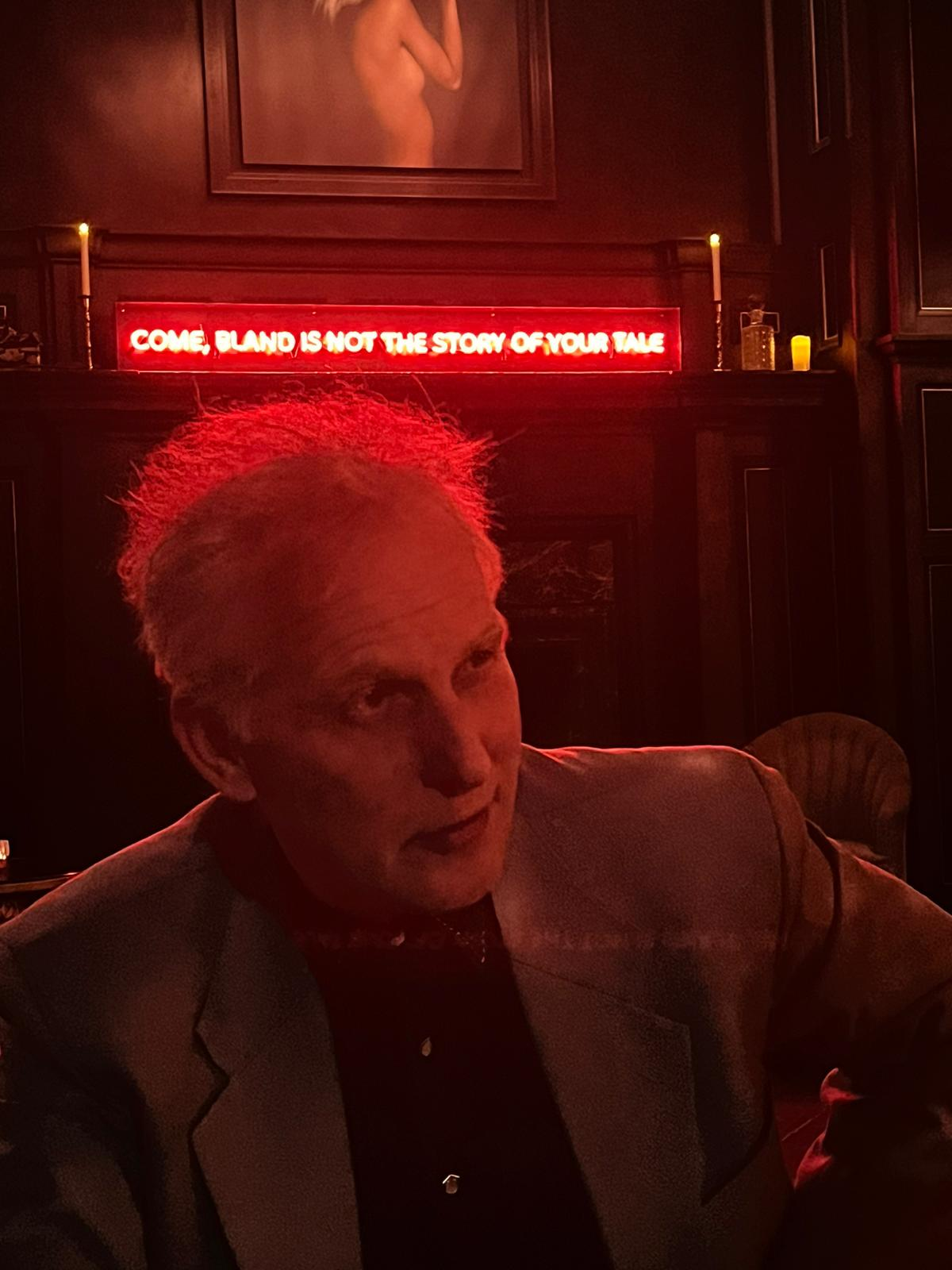
ABOUT THE INTERVIEWER
Richard Marshall is biding his time.
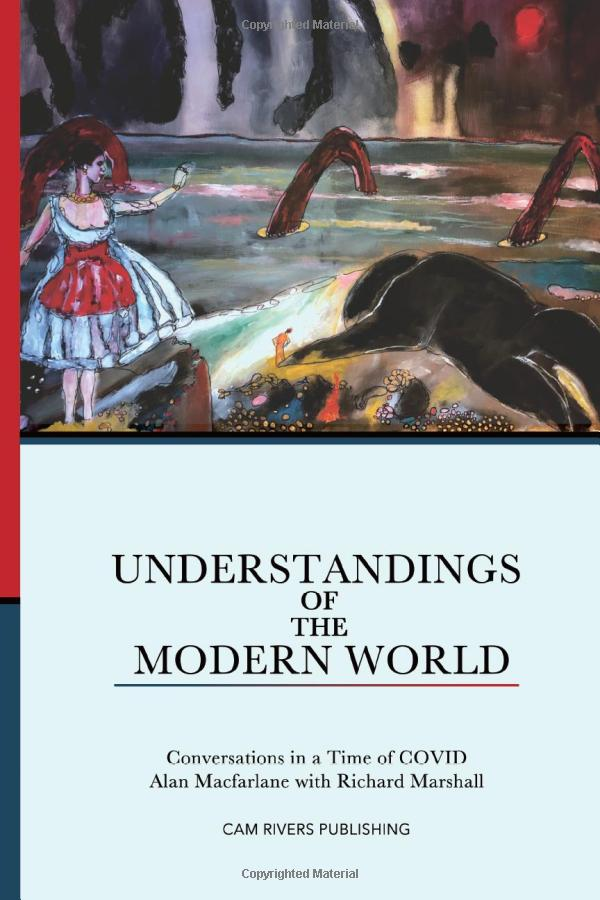
Buy his third book here, his second book here or his first book here to keep him biding!
End Time series: the themes
Huw Price's Flickering Shadows series.
Steven DeLay's Finding meaning series
Josef Mitterer's The Beyond of Philosophy serialised
